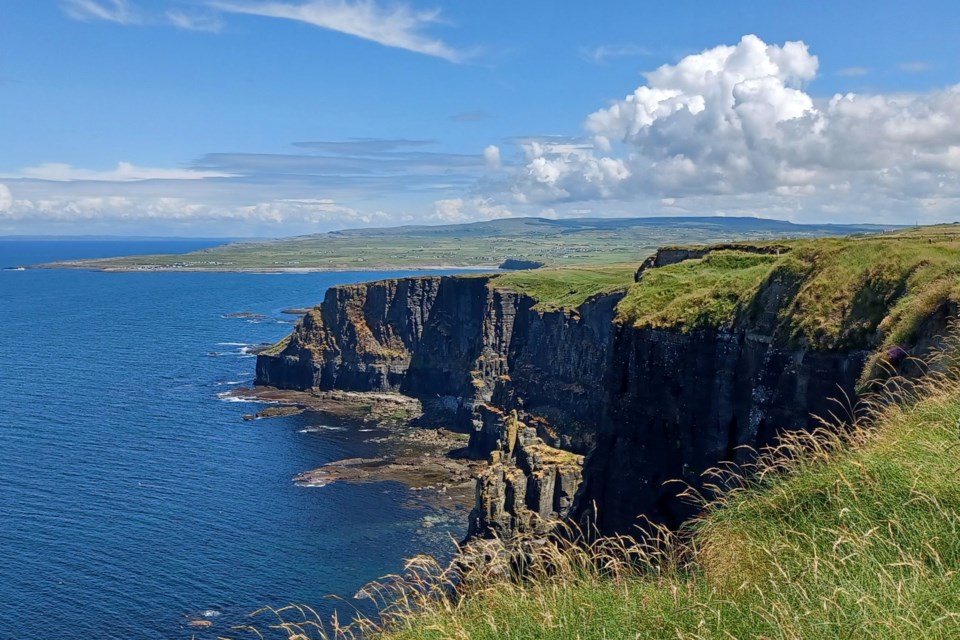To the editor:
As Canadians, we are experiencing post-Covid economic challenges that some believe are only made in Canada.
However, my fiancée and I were fortunate to recently travel through rural Ireland plus Edinburgh, Scotland and confirmed these challenges are faced by other nations.
Ireland, a nation known for its rich history and picturesque landscapes, currently finds itself grappling with a host of issues (except for one) strikingly similar to those we encounter here in Canada. It is time that some Canadians realize, we do not live in a self-created bubble!
We were struck by the parallels between the challenges faced by Europeans and those we confront here at home. High inflation, for instance, has been a growing concern in both countries. Prices of everyday essentials are rising at alarming rates, burdening ordinary citizens and undermining their ability to make ends meet.
For example, an imperial gallon of gas ranged from $9.05 to $9.50! The lack of affordable housing further compounds the problem, making it increasingly difficult for young people and families to find stable accommodations. From talking to many Irish Gen Z, they have lost hope of owning a home because of a lack of supply of affordable housing.
Just as we see in Canada, the Irish are grappling with labour shortages that have far-reaching implications for various industries ranging from education, health and skilled trades. However, the hospitality industry has been hit the hardest. Actually, many young Irish people we chatted with indicated they are moving to Vancouver and Whistler, which I quickly pointed out has similar cost issues.
The effects are palpable, with businesses struggling to meet demand and an overall decline in productivity. We met a well-known restaurant owner in Kinsale, a
fishing port near Cork, who can not open two other parts of his establishment because of the lack of staff. So, it is costing him business.
Moreover, homelessness casts a dark shadow over both nations. The sight of individuals on the streets, devoid of basic shelter and human dignity, is not unique to Canada.
Furthermore, the Irish people, like us, are acutely aware of the impending crisis posed by climate change. Rising sea levels, extreme weather events, and the degradation of natural resources threaten their way of life, just as they do ours.
While Canada grapples with its fair share of challenges, Ireland has thus far been spared the full extent of the opioid drug crisis that plagues Canada. The fact that it has not reached the shores of Ireland does not mean that they believe that the problem will not surface.
Our trip to Ireland served as a stark reminder that Canada does not have a monopoly on social and economic challenges. It is clear that Canada has recovered faster than other countries. However, Canadians must recognize that our nation shares common struggles with the rest of the world.
All levels of government, no matter the political stripe, need to cooperatively address issues, especially the lack of affordable housing for our youth and seniors, labour shortages, homelessness, opioid addiction and climate change head-on. We can rebuild our economy while at the same time being more resilient, equitable, and compassionate Canadians.
David Thompson
North Bay



